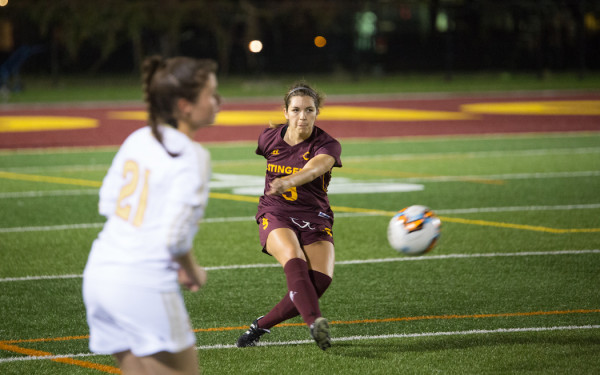Fringe Food
Gather ‘Round the Table
It may come as a surprise to some Montrealers that accessible, healthy, communal meals have been offered on Concordia’s campuses since long before the now-famous People’s Potato was born.
Years before the Potato was born, the Multifaith Chaplaincy began preparing hot, vegan meals on a weekly basis for students and community members who may have been short on cash, or suffering from social isolation. What began as a service to the community—accessible food, warm smiles and hot coffee—resulted in a community all of its own: Mother Hubbard’s Cupboard.
Now in its 20th year, Mother Hubbard’s, or “Mo Hubbs” as it is affectionately known among regulars, remains a vital organ of Concordia’s chaplaincy, frequented by up to 100 students each Thursday.
Being a grateful former patron of Mother Hubbard’s myself—particularly during one cold winter living around the corner on Lincoln St.—I was curious to find out how the initiative had grown in the past ten years, to find out what communality and nourishment meant to the current-day patrons and coordinators.
I sat down with Keawe Aquarian, Mo Hubb’s deeply-committed coordinator, peppering him with questions about the philosophical and practical challenges of putting together a fresh, tasty vegan meal each week for the student community.
A student in biochemistry with a background as a personal chef and caterer, Aquarian revealed that he was also caring for a newly-born daughter. With only twenty-four hours between our interview and Mo Hubb’s Thursday evening meal, the man seemed remarkably unruffled.
“It’s a special place,” he said of Mo Hubbs, for which he shops, plans the meals, manages the budget and coordinates a team of “regular and first-time” volunteers each week.
“We have to be very creative,” he said, adding that both budgetary and space concerns force a certain freshness and uniqueness to each week’s meal. “The food budget each week is made up 100 per cent of donations from the previous week,” says Keawe, adding that a lack of industrial kitchen space, pantries or fridges mean that all shopping for the meal must happen the day before the event.
While Aquarian told me that the donation-based model of Mo Hubbs can make for constrained budgets and hence simple, honest ingredients, he manages to spice things up as much as he possibly can. When I spoke to him, for example, he was in the midst of preparing upwards of a hundred coconut bacon BLTs.
“I like to offer a treat whenever there’s a few more donations from the previous week,” he said, pointing to the collaborative, ‘pay it forward’ model that shapes each meal.
A few generous donations one week can lead to a few more exotic ingredients for the next week, whether or not those donors show up to enjoy it or not. It seems to me that this is in stark opposition for the “get what you pay for” mentality of the traditional restaurant, which thrives off market buzzwords such as ‘value’ and ‘exclusivity.’
Mo Hubbs is just the opposite. It is, in the words of Aquarian, “a space of dialogue.” This is not only an economic one, as evidenced above, but a cultural and religious dialogue too.
For instance, Aquarian tells me that, just the week before, a Pakistani student dining at Mo Hubbs shared her inner conflict over a prearranged marriage her parents had planned for her back home, spurring a dynamic discussion at the table about cross-cultural definitions of marriage, spirituality and family values.
When he describes to me another unconventional feature of Mo Hubbs—the fact that diners line up and enter through the kitchen space (often while the dishes are still being completed)—it struck me that the “space of dialogue” there also occurs around the food itself. Diners get to see firsthand the hard work that is put into their meal, and often ask questions—or even get inspired to volunteer the next week.
For his part, Aquarian sees the culinary dialogue as complementary to the cultural one. “I learn so much from my volunteers,” he said, adding that although he uses his chef background to teach them new techniques and recipes each week, they often teach him their own specific cultural culinary practices.
Mother Hubbard’s Cupboard offers a fresh vegan meal on a donation basis each Thursday from 5:00 p.m. to 7:00 p.m. Please bring your student ID. For more information, or to volunteer, visit here


_600_832_s.png)

_600_375_90_s_c1.jpg)
1_600_375_90_s_c1.jpg)

3_600_375_90_s_c1.jpg)